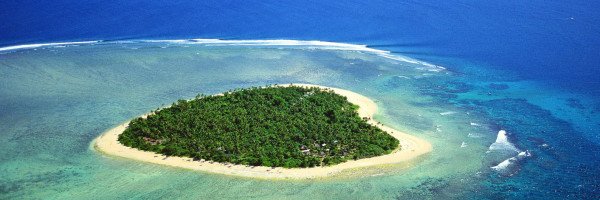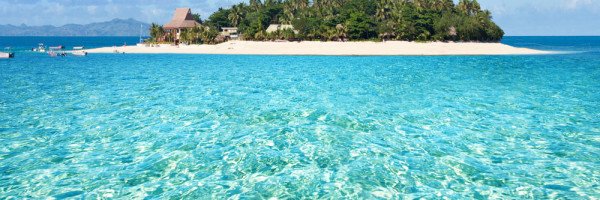Understanding Community-Based Eco-Tourism in Fiji
Community-based eco-tourism in Fiji is an innovative approach that fosters sustainable travel while promoting local culture and engaging community members in responsible tourism practices. This model not only benefits local economies but also preserves the unique natural beauty of the Fiji Islands. With New Zealanders increasingly conscious of their travel choices, supporting Fiji eco-tourism initiatives can create a positive impact. By participating in community-led projects, visitors can experience authentic Fijian culture, support conservation efforts, and contribute to the livelihoods of local families. For more insights into the diverse eco-tourism experiences available, visit Fiji Islands.Engaging with Local Communities
One of the most rewarding aspects of community-based eco-tourism in Fiji is the opportunity to engage directly with local communities. New Zealanders can support these initiatives by seeking out homestays, village tours, and cultural experiences that are managed by local residents. These experiences often include traditional ceremonies, cooking classes, and guided tours that showcase the island’s biodiversity. Engaging with locals not only enriches your travel experience but also ensures that the economic benefits of tourism are distributed within the community. By choosing to stay in locally owned accommodations or participating in local tours, travelers can help sustain the cultural heritage and natural environment of Fiji.Conservation Efforts and Their Importance
Fiji is home to stunning landscapes and vibrant ecosystems, but these areas are under threat from climate change and unsustainable practices. Community-based eco-tourism initiatives often focus on conservation efforts, such as marine protection, reforestation, and wildlife preservation. New Zealanders can support these initiatives by participating in eco-tours that include conservation activities, such as coral planting or beach clean-ups. These hands-on experiences not only help protect Fiji’s natural environment but also educate travelers about the importance of sustainability. By choosing eco-friendly tours and supporting conservation projects, visitors can leave a lasting positive impact on the Fijian Islands.Promoting Sustainable Practices
Sustainable practices are at the heart of community-based eco-tourism in Fiji. New Zealanders can contribute by choosing eco-friendly transportation options, supporting local businesses, and minimizing their environmental footprint during their travels. Opting for guided tours that prioritize sustainability—such as those that use solar energy or promote waste reduction—can amplify the positive effects of eco-tourism. Additionally, travelers can bring their own reusable items, such as water bottles and shopping bags, to reduce plastic waste. By actively promoting sustainable practices, visitors can help create a more responsible tourism model in Fiji, ensuring that future generations can enjoy its beauty.Supporting Local Artisans and Craftsmanship
Art and craftsmanship are vital components of Fijian culture, and supporting local artisans is a meaningful way to contribute to community-based eco-tourism. New Zealanders can seek out markets and workshops that offer handmade crafts, textiles, and artwork created by local artisans. Purchasing these items not only provides economic support but also helps preserve traditional Fijian art forms. Engaging in workshops where travelers can learn from craftsmen can enrich the travel experience and foster cultural exchange. By prioritizing local products over mass-produced souvenirs, visitors can help sustain the creative livelihoods of Fijian communities.Health and Wellness Tourism in Fiji
Health and wellness tourism is an emerging trend in Fiji that aligns perfectly with the objectives of community-based eco-tourism. New Zealanders looking for relaxation and rejuvenation can explore wellness retreats that incorporate traditional Fijian healing practices. Many of these retreats focus on holistic well-being, offering yoga, meditation, and natural therapies that utilize local resources. By participating in wellness tourism, travelers not only benefit from the serene environment of the Fiji Islands but also support local practitioners and promote the preservation of traditional health practices. This symbiosis between wellness and community engagement exemplifies how eco-tourism can encompass various facets of travel.Making a Difference Through Responsible Travel Choices
Making responsible travel choices is crucial for ensuring that tourism in Fiji remains sustainable and beneficial to local communities. New Zealanders can make a difference by researching their travel options, prioritizing eco-friendly accommodations, and supporting tours that practice responsible tourism. Engaging with tour operators that are committed to community involvement and environmental conservation is essential. Additionally, travelers should be mindful of their impact on the local culture and environment by respecting local customs and minimizing waste. By making informed decisions, visitors can contribute to the growth of community-based eco-tourism in Fiji and help preserve its unique heritage for years to come. For further details on responsible travel options, check out Fiji Islands.FAQs
What is community-based eco-tourism in Fiji?
Community-based eco-tourism in Fiji focuses on sustainable travel experiences that benefit local communities, preserving their culture and environment. It emphasizes responsible tourism practices that engage visitors with local traditions, natural resources, and conservation efforts.
How can New Zealanders support eco-tourism initiatives in Fiji?
New Zealanders can support eco-tourism initiatives in Fiji by choosing to travel with local operators, participating in community-led tours, and contributing to local conservation projects. Additionally, promoting awareness and sharing experiences can help attract more visitors to these initiatives.
What are some examples of eco-tourism activities available in Fiji?
In Fiji, eco-tourism activities include guided nature walks, snorkeling or diving in protected marine areas, cultural experiences such as traditional cooking classes, and volunteering on conservation projects. These activities allow visitors to connect with the Fijian environment and its people.
Are there specific regions in Fiji that focus on eco-tourism?
Yes, several regions in Fiji are known for their eco-tourism efforts, including the Yasawa Islands, Taveuni, and Vanua Levu. These areas offer unique landscapes, rich biodiversity, and community initiatives designed to promote sustainable practices and preserve local cultures.
What are the environmental benefits of eco-tourism in Fiji?
Eco-tourism in Fiji promotes environmental conservation by raising awareness about local ecosystems, supporting wildlife protection efforts, and encouraging sustainable practices among communities. It helps generate income for conservation projects and fosters a sense of stewardship among both locals and visitors.
How can travelers ensure they are participating in responsible eco-tourism?
Travelers can ensure responsible eco-tourism by researching and selecting certified eco-tourism operators, respecting local cultures and traditions, minimizing waste, and prioritizing experiences that benefit the community. Engaging in responsible behaviors helps protect the environment and enhances the overall travel experience.
What role do local communities play in eco-tourism in Fiji?
Local communities play a crucial role in eco-tourism in Fiji by leading initiatives, providing authentic cultural experiences, and managing natural resources sustainably. Their involvement ensures that tourism benefits them directly, empowering them to maintain their traditions and protect their environment.
References
- Fiji Islands Official Tourism Website – This site provides comprehensive information about Fiji’s eco-tourism offerings, including community-based initiatives that New Zealanders can support.
- Ecotourism Society – The Ecotourism Society promotes responsible travel to natural areas, providing resources and case studies that highlight successful community-based eco-tourism projects, including those in Fiji.
- United Nations World Tourism Organization (UNWTO) – The UNWTO offers reports and guidelines on sustainable tourism practices, focusing on community involvement and support, relevant to Fiji’s eco-tourism landscape.
- Greenpeace – This organization advocates for sustainable practices and provides insights into eco-tourism’s role in conservation, encouraging support for local initiatives in regions like Fiji.
- The Wildlife Society – An organization dedicated to wildlife management and conservation, offering information on how eco-tourism can positively impact local communities and ecosystems in Fiji.







